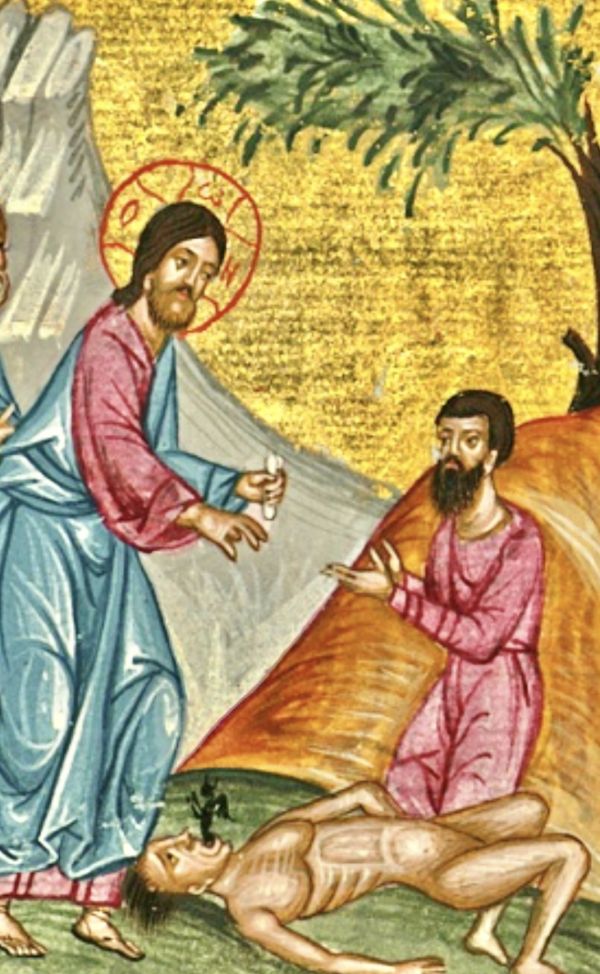(Mk 9:14-29)
The messianicity of Christ and Salvation itself belong to the sphere of Faith and Prayer.
They are the ambits of intimate listening, acute perception, trusting spousal acceptance, and liberating drive.
On this point Jesus rails against the mediocrity of his followers (vv.18-19) and is forced to start over from scratch (vv.28-29).
So much so that «having entered the House» that is, into his Church (v.28) he must begin again with basic catechism.
The passage is structured along the lines of the first catechumenal liturgies.
The Lord wants people enslaved by power ideology and false devotion to be brought to Him (v.19) and demands the Faith of those who lead them (vv.23-24).
The beginner goes through a life overhaul that «twists» and «leads to the ground».
This is because one can be plagiarised by unwise spiritual guides.
Then it’s a real heartbreak to discover that from childhood (v.21) one has been regulated to a mortifying model of life - made up of easy classifications, which, however, do not realise but dehumanise.
In order to be liberated and rise to new life (v.27) the candidate passes as if through a death - a sort of baptismal immersion, which drowns his former [de facto, paganising] formation.
At the time of Mk, many spoke of expelling demons.
In the typology of the new Baptism, the community of Rome wanted to express the objective of the Good News of the Gospels: to help people rise up - freeing themselves from fears of the evil’s power.
In the passage, the child's deafness and muteness indicate the lack of the «Word» that becomes an «event» - both in the midst of the disoriented people and among the disciples, who are sick of protagonism and one-sidedness.
The young man's very behaviour (vv.18.20.26) traces the existential patterns of people subjugated by invincible forces, because they are self-destructive - thus in the grip of obsessive, unrelenting lacerations.
It’s a precisely heart-rending situation: that of one who discovers that he has been deceived by a religiosity of all too common beliefs.
The advent of the Kingdom of God meant the coming of a ‘sheltered power’ stronger than the Roman army itself, whose legions were used to maintain situations of civil oppression, even religious fear.
At all times, between the forces that induce profound illnesses [like something that has taken possession of us] and the presence of the Messiah, a no-holds-barred struggle ensues.
The two opposite poles cannot stand each other; they make sparks. But the solution is not to amaze the crowds, nor vice versa to attempt to remake normal things.
Sometimes it seems that we are not in a position to initiate genuine healing processes (v.18).
But evil doesn’t yield by miracle or clamour, nor by force and man's insistence, but by attunement and Gift (v.29). From inner powers.
Here is the space of prayer-listening:
For solutions that solve real problems, we do not constantly need conformist rules, but a new ability to ‘read things’.
Our life is not played on the initiative of what we are already able to set up and practice - or interpret, design and predict (vv.14-19) - but about Attention (v.29).
Prayer takes out of boundaries and puts us in touch with other energies and surprises that we had not noticed: innate virtues and of the Grace, which allow to see every situation through different, liberated eyes.
[Monday 7th wk. in O.T. February 24, 2025]












